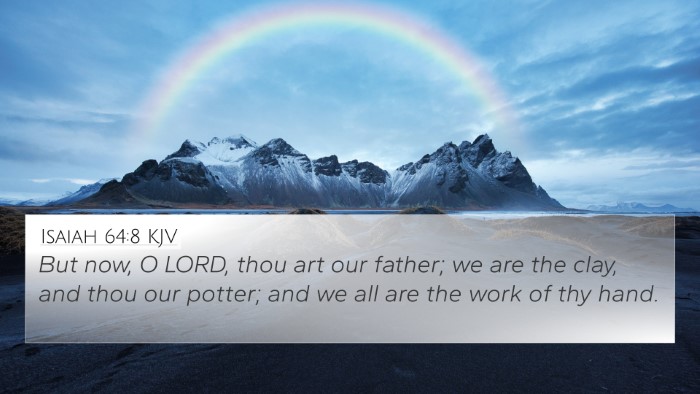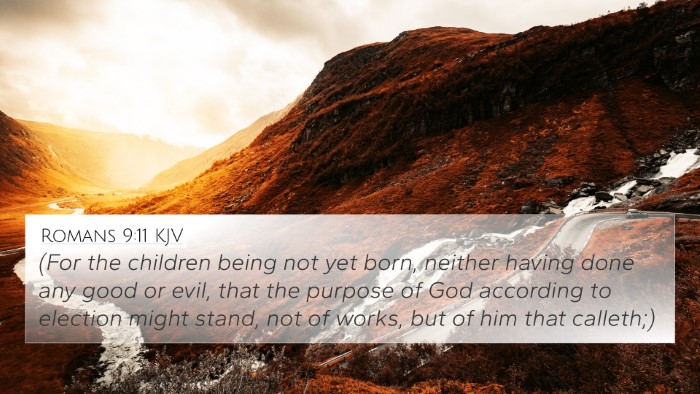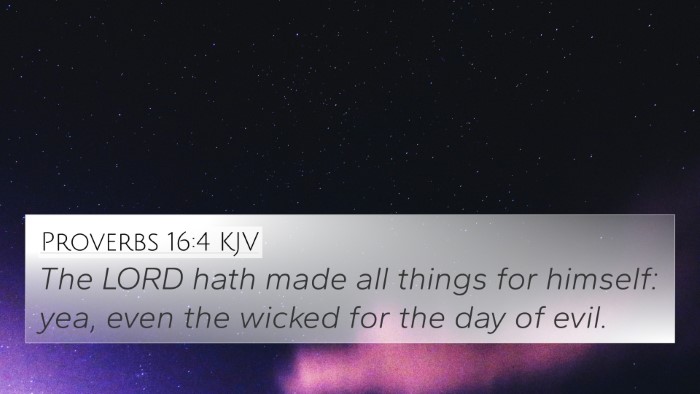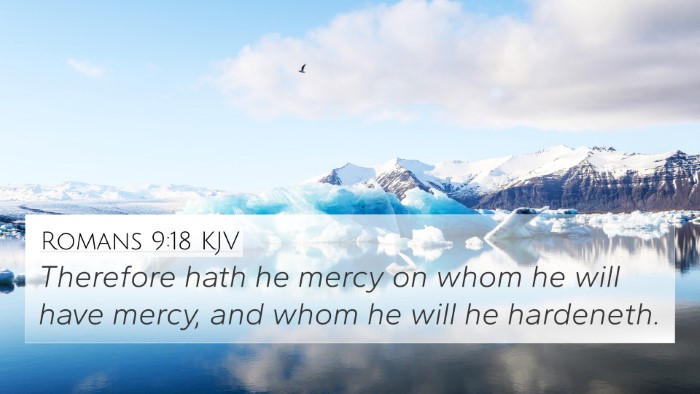Understanding Romans 9:21
Romans 9:21 states: "Hath not the potter power over the clay, of the same lump to make one vessel unto honour, and another unto dishonour?" This verse provides profound insights into God's sovereignty and the divine purpose behind creation.
Overview of the Verse
In this passage, the Apostle Paul draws an analogy between God and a potter, emphasizing the authority and freedom of the potter over the clay. This symbolizes God's absolute sovereignty over humanity and His right to determine the fate and purpose of His creations.
Commentary Insights
- Matthew Henry: Henry highlights that just as a potter has the authority to shape the clay into various forms, God has the authority to shape each individual according to His divine purpose. He emphasizes that this illustrates God's control over His creation without injustice, as He is the creator of everything.
- Albert Barnes: Barnes focuses on the implications of God's sovereignty, explaining that the potter's ability to create vessels for honor or dishonor represents God's prerogative to decide how individuals will be used in His plan. He notes that this does not imply capriciousness on God’s part, but rather His wisdom and justice in all His actions.
- Adam Clarke: Clarke elaborates on the relationship between God and humanity. He explains that the "clay" represents mankind and underscores the concept that God uses different individuals for distinct purposes within His overall plan, whether for glory or for judgment.
Thematic Connections
The themes of divine sovereignty and human responsibility are prevalent throughout Scripture. This verse can be cross-referenced with several other passages to deepen our understanding:
- Isaiah 64:8: "But now, O Lord, thou art our father; we are the clay, and thou our potter; and we all are the work of thy hand." This verse reinforces the theme of God as the creator and mankind as His creation.
- Jeremiah 18:6: "O house of Israel, cannot I do with you as this potter? saith the Lord. Behold, as the clay is in the potter's hand, so are ye in mine hand, O house of Israel." This verse emphasizes God's authority to mold and guide His people.
- Ephesians 2:10: "For we are his workmanship, created in Christ Jesus unto good works, which God hath before ordained that we should walk in them." This verse connects the theme of God's purpose in shaping individuals for specific roles in His plans.
- Romans 9:22: Continuing from our verse, it speaks of God's wrath and mercy, showcasing the duality of His character in dealing with humanity.
- 2 Timothy 2:20-21: "But in a great house there are not only vessels of gold and of silver, but also of wood and of earth; and some to honour, and some to dishonour. If a man therefore purge himself from these, he shall be a vessel unto honour." This verse echoes the notion of being set apart for different purposes by God.
- 1 Peter 2:9: "But ye are a chosen generation, a royal priesthood, an holy nation, a peculiar people; that ye should show forth the praises of him who hath called you out of darkness into his marvelous light." This highlights the honor given to certain individuals by God.
- Proverbs 16:4: "The Lord hath made all things for himself: yea, even the wicked for the day of evil." This asserts God’s sovereignty in all aspects of creation, including those designated for dishonor.
Practical Applications
Understanding Romans 9:21 encourages believers to:
- Recognize God’s Sovereignty: Acknowledge that God has the right and authority to shape individual lives as He sees fit, providing comfort in times of uncertainty.
- Embrace Purpose: Reflect on one’s own life purpose, recognizing that being a vessel for honor requires humility, obedience, and faithfulness to God’s plan.
- Encourage Others: Share the truth of God's sovereignty and plan for each person, offering hope to those who may feel purposeless or lost.
Conclusion
Romans 9:21 invites believers to deeply engage with the nature of God as the sovereign potter and themselves as the clay. This analogy stirs a profound understanding of identity, purpose, and the divine plan evident through various Biblical themes and cross-references. In studying this verse and its connections, believers can strengthen their faith while recognizing both the authority and grace of God in their lives.
Further Studies and Resources
For those interested in a deeper exploration, utilizing tools for Bible cross-referencing can enhance understanding. A Bible concordance, cross-reference Bible study guides, and comprehensive Bible cross-reference materials are invaluable resources for discovering thematic Bible verse connections and related scriptures.
Explore various methods on how to use Bible cross-references effectively, from identifying links between the Old and New Testament to detailed comparative studies of Pauline epistles, which can reveal the intricate web of God’s revealed truth throughout Scripture.












